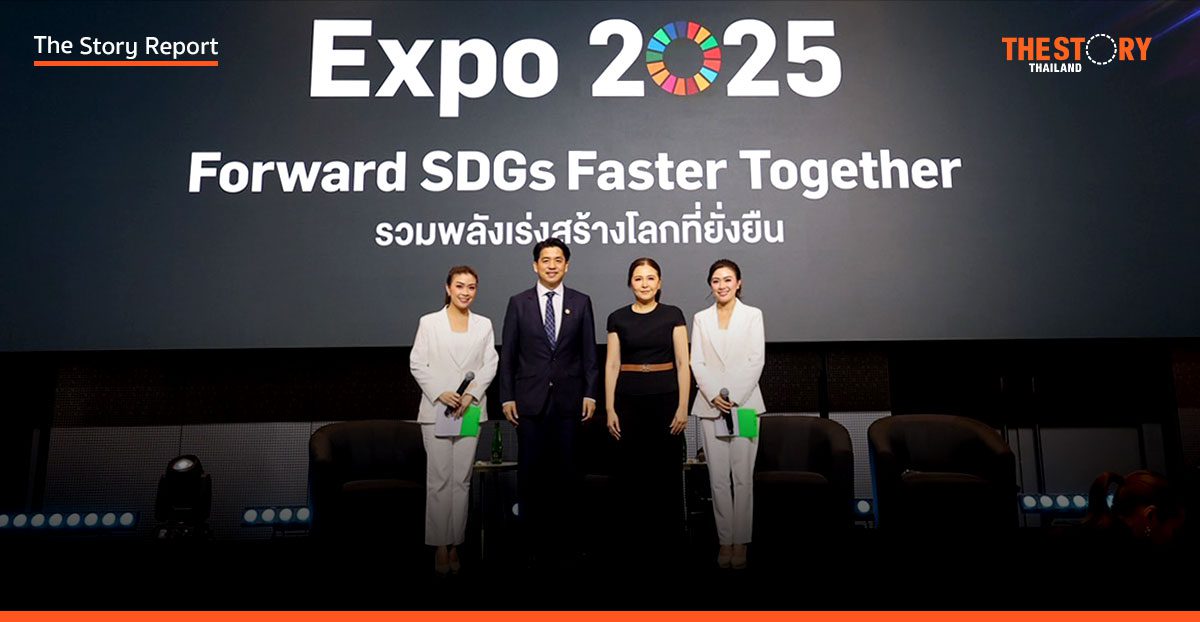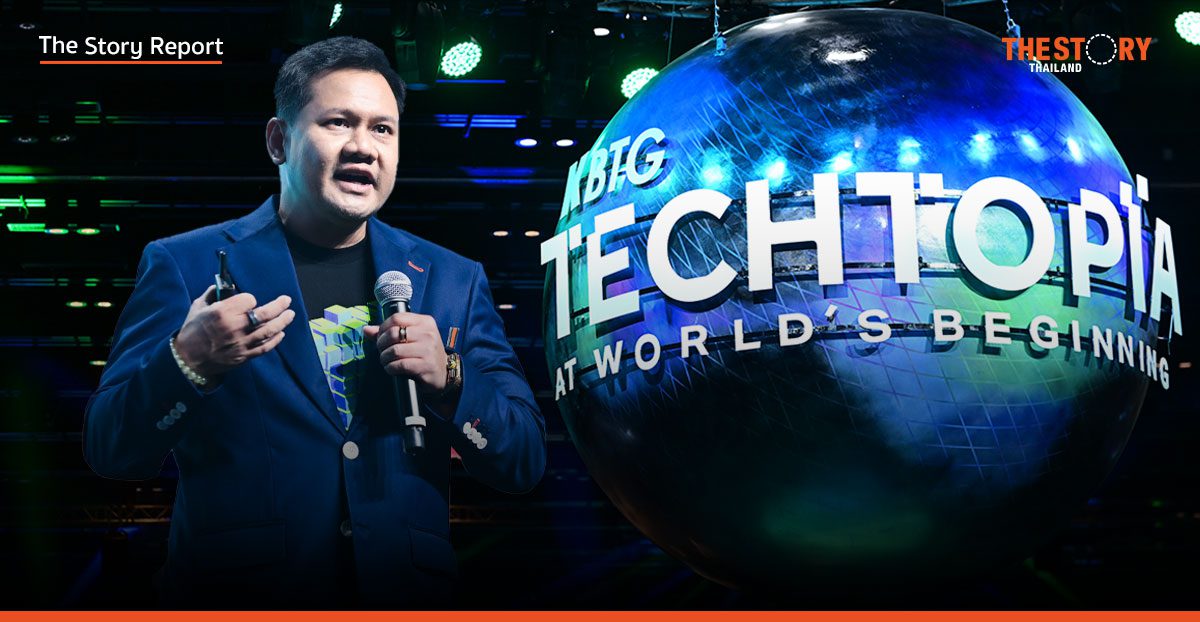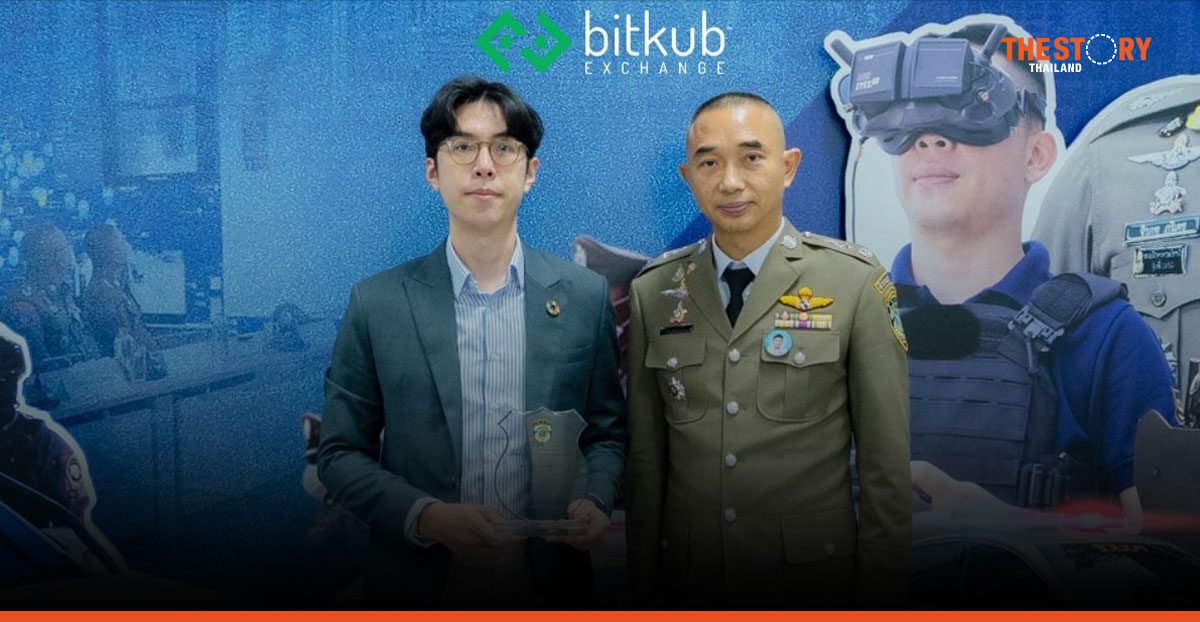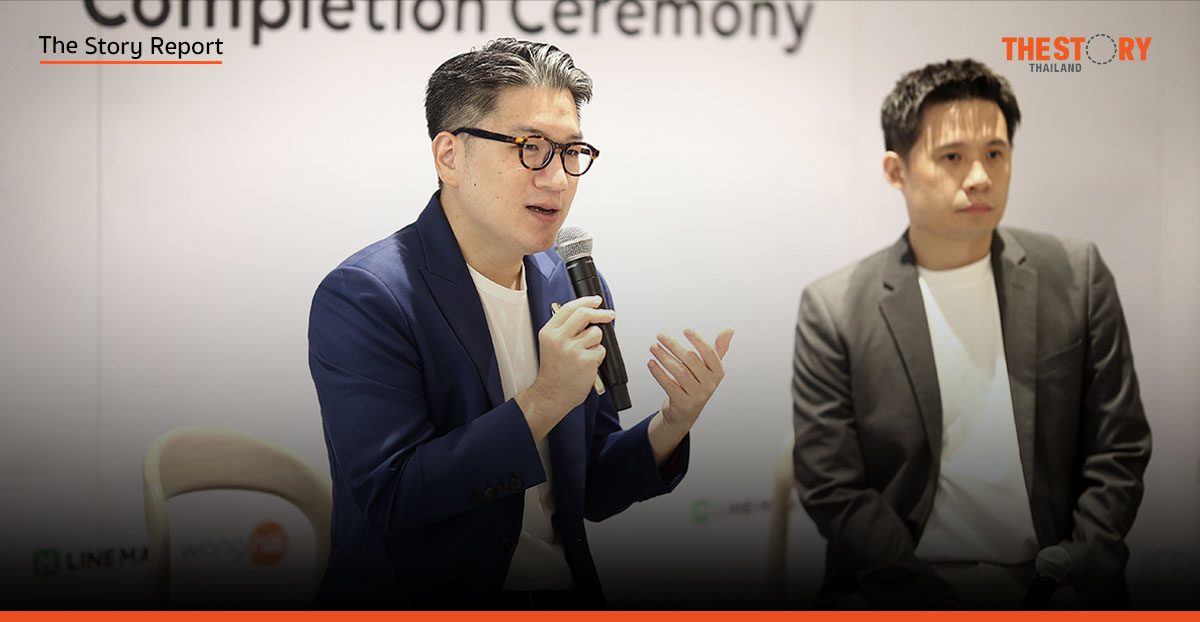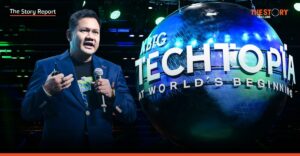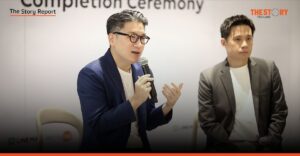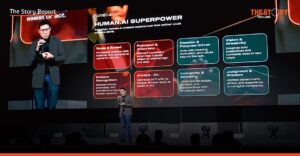Top executives from global giants Unilever and Charoen Pokphand (CP) Group today outlined their ambitious corporate strategies to tackle pressing global challenges, positioning technological innovation and cross-sector collaboration as essential tools for achieving sustainability. Speaking at the GCNT Expo 2025, the leaders detailed their roadmaps for reaching Net Zero emissions, eliminating waste, and enhancing food security, signaling a decisive shift toward embedding sustainability at the core of their business operations.
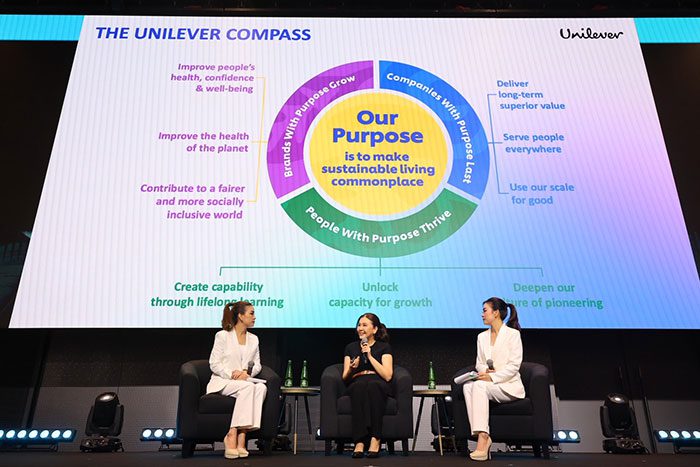
Aphiporn Adulpichit, Head of R&D for Foods in Greater Asia at Unilever, stated that for a company reaching 3.4 billion consumers daily, sustainability is no longer an optional add-on but a central part of its corporate purpose. She explained that Unilever’s strategy is built on four key pillars: climate, nature, plastic, and livelihoods. The company has already reduced factory emissions by 72% since 2015 and is now targeting a 100% reduction, Aphiporn noted. Other goals include promoting regenerative agriculture across one million hectares and making all plastic packaging reusable, recyclable, or compostable.
To drive the innovation required for these goals, Unilever is fostering collaborative ecosystems. Adulpichit cited the company’s “Hive Center” in the Netherlands, a hub designed to facilitate open innovation between its research teams, startups, and academic partners. This approach, she explained, is critical to solving complex challenges, such as developing palatable plant-based foods and reducing sugar in products to meet evolving consumer demands.
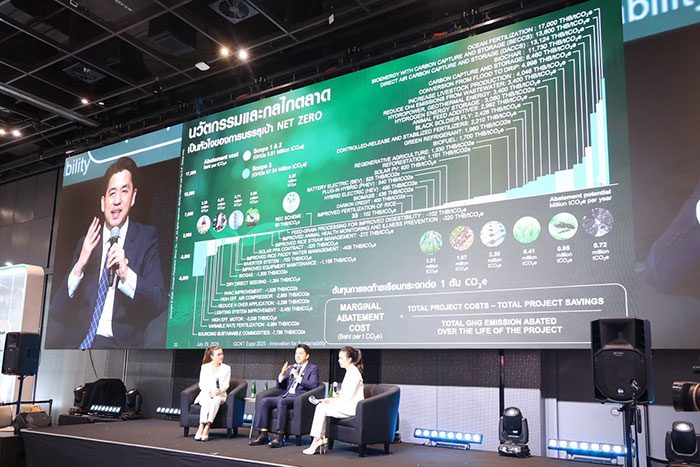
Representing CP Group, Chief Sustainability and Strategy Officer Teeraphol Tanomsakyuth described innovation as a “game-changer” in what he termed a critical race to meet the UN’s Sustainable Development Goals (SDGs). He highlighted the stark reality of global crises, from the 700 million people still facing hunger to the one-third of all food that is wasted annually. He asserted that technologies like Artificial Intelligence are essential to bridging this gap.
Teeraphol also drew a crucial link between national food security and the financial stability of farmers, a foundational element of sustainability he said is often overlooked. He pointed to the precarious income of Thai tenant farmers, who may earn as little as $1.50 to $4.50 per day, a figure below the global poverty line. “A nation’s food security is only as strong as the financial stability of its farmers,” he argued, calling for financial literacy to be integrated into the national education system.
CP Group’s strategy, he continued, is focused on three primary objectives. The first is achieving carbon neutrality by 2030 and Net Zero emissions by 2050, driven by investments in renewable energy and electric vehicles. The second is a “Zero Waste to Landfill” goal, which addresses food waste, e-waste, and future challenges like EV batteries. The third is a commitment to providing quality education access to 50 million people, which Teeraphol called the ultimate foundation for sustainable change.
Though representing different industries, both speakers concluded with a shared vision. They emphasized that large-scale global problems demand unprecedented collaboration between corporations, governments, and civil society. They presented technology not as a threat but as an indispensable tool and framed the world’s sustainability crises as significant opportunities for businesses prepared to innovate and lead.
Banpu expands Battery Storage (BESS) in Japan and Australia to power AI growth
Bitkub and Ledger join forces to boost crypto security education in Thailand


